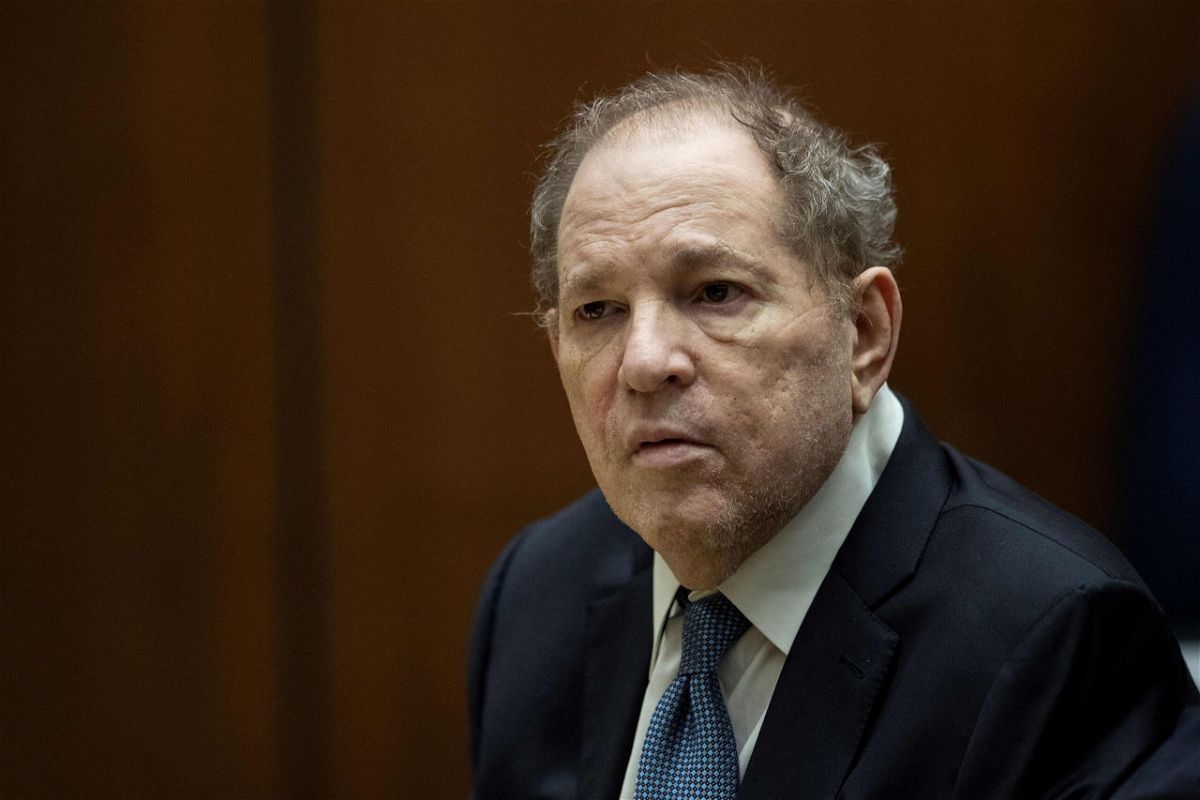New York appeals court overturns Harvey Weinstein’s sex crimes conviction and orders a new trial

Originally Published: 25 APR 24 09:22 ET
Updated: 25 APR 24 10:52 ET
By Eric Levenson, CNN
(CNN) — The New York Court of Appeals on Thursday overturned the sex crimes conviction against Harvey Weinstein, the powerful Hollywood producer whose downfall stood as a symbol of the #MeToo movement.
The court, by a 4-3 vote, ordered a new trial.
“We conclude that the trial court erroneously admitted testimony of uncharged, alleged prior sexual acts against persons other than the complainants of the underlying crimes because that testimony served no material non-propensity purpose,” the ruling, written by Judge Jenny Rivera, states.
“The court compounded that error when it ruled that defendant, who had no criminal history, could be cross examined about those allegations as well as numerous allegations of misconduct that portrayed defendant in a highly prejudicial light. The synergistic effect of these errors was not harmless.”
Weinstein, 72, is being held at Mohawk Correctional Facility in Rome, New York, according to the state Department of Corrections and Community Supervision. He also was sentenced last year in Los Angeles to 16 years in prison for charges of rape and sexual assault.
Weinstein has maintained his innocence and has denied any nonconsensual sexual activity.
“Justice was served,” Donna Rotunno, the lead defense attorney at Weinstein’s trial in New York, said Thursday in response to the appeals court decision.
“I believe this decision is larger than Harvey Weinstein. Courts cannot operate on emotion and lack of due process. The world is off-balance, and when the justice system does not work, nothing does. This decision restores faith in the foundation of our system.”
The Manhattan District Attorney’s Office said it plans to retry the case.
“We will do everything in our power to retry this case, and remain steadfast in our commitment to survivors of sexual assault,” said Emily Tuttle, deputy director of communications and senior advisor for the Manhattan District Attorney’s Office.
Douglas H. Wigdor, an attorney who has represented eight of Weinstein’s accusers, including two of the “prior bad acts” witnesses at his New York criminal trial, criticized the ruling.
“Today’s decision is a major step back in holding those accountable for acts of sexual violence,” he said in a statement. “Courts routinely admit evidence of other uncharged acts where they assist juries in understanding issues concerning the intent, modus operandi or scheme of the defendant. The jury was instructed on the relevance of this testimony and overturning the verdict is tragic in that it will require the victims to endure yet another trial.”
The ruling comes more than six years after reporting by The New York Times and The New Yorker in 2017 revealed Weinstein’s alleged history of sexual abuse, harassment and secret settlements as he used his influence as a Hollywood power broker to take advantage of young women.
At the time, Weinstein was one of the most powerful men in Hollywood and helped produce movies such as “Pulp Fiction,” “Clerks” and “Shakespeare in Love.” The revelations led to a wave of women speaking publicly about the pervasiveness of sexual abuse and harassment in what became known as the #MeToo movement.
Yet, #MeToo has had mixed success in the courtroom, and this is the second high-profile case to be overturned on appeal. The comedian Bill Cosby was convicted in 2018 of drugging and sexually assaulting a woman, but a Pennsylvania appeals court overturned the conviction in 2021, saying his due process rights were violated.
What happened at his NY trial
In New York, Weinstein was convicted in 2020 of first-degree criminal sexual act and third-degree rape, and he was sentenced to 23 years in prison.
The charges that resulted in convictions were based on the testimony of Miriam Haley and Jessica Mann. Haley testified that Weinstein forcibly performed oral sex on her in 2006 at his Manhattan apartment, and Mann testified that he raped her in 2013 during what she described as an abusive relationship.
In addition, three other women testified during the trial as “prior bad acts” witnesses as prosecutors sought to show Weinstein had a pattern of abuse. These women each said Weinstein used his Hollywood influence to take advantage of them when they were young and hoping to break into the film industry.
The use of “prior bad acts” witnesses has increased in recent years with the rise of the #MeToo movement. In sexual assault cases, their testimony can turn a difficult “he said, she said” case into a more convincing “he said, they said” case.
In general, evidence that the defendant has poor character or has done bad things in the past is not allowed during a trial. The fear is that the jury will be overly influenced by these prior incidents and may ignore the actual evidence of the alleged crime.
“Prior bad acts” evidence is one exception to this rule. It can be used to prove the defendant’s “motive, opportunity, intent, preparation, plan, knowledge, identity, absence of mistake, or lack of accident,” according to federal evidence rules.
Judges have a fair amount of discretion to decide what is and what isn’t allowed in court as they try to balance the relevance of the testimony against the prejudice to the jury.
This is a developing story and will be updated.
The-CNN-Wire
™ & © 2024 Cable News Network, Inc., a Warner Bros. Discovery Company. All rights reserved.